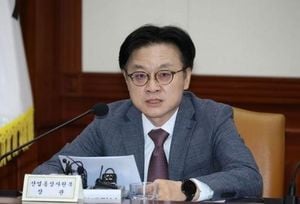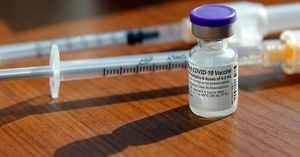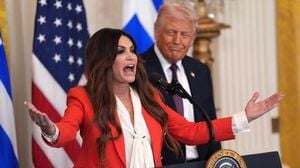The United Kingdom is shining a spotlight on allegations of pandemic-related fraud as Tom Hayhoe officially steps in as the new Covid Corruption Commissioner. With the government recently grappling with the aftermath of the pandemic purchases, Hayhoe is tasked with investigating what is being described as a "carnival of fraud" surrounding billions of pounds worth of Personal Protective Equipment (PPE) contracts.
Have you ever wondered how the UK was flooded with PPE, only for much of it to end up unusable? That’s the troubling scenario government officials are now remedying. Hayhoe’s immediate mission is to review contracts totaling approximately £8.7 billion from the pandemic, which the government had previously written off. These contracts included vast quantities of equipment intended to safeguard health workers during the Covid-19 pandemic.
Chancellor Rachel Reeves, on announcing Hayhoe’s appointment, made it clear: the government wants accountability and intends to reclaim as much taxpayer money as possible. She emphasized, "Sound management of public finances means spending wisely and not sending money to fraudsters." This move is part of Labour’s broader strategy to recover public funds wasted on ill-conceived pandemic deals.
“Tom Hayhoe will leave no stone unturned,” Reeves declared, reflecting the urgency and determination of the new commissioner's mission. Hayhoe, who has extensive experience within health policy and previously chaired NHS Trusts, is expected to leverage his background to navigate the murky waters of procurement where contracts were not just overpriced but potentially fraudulent.
Interestingly, the investigation began with the spotlight shining on the government's approach during the pandemic, particularly its handling of PPE procurement. The revelations are stark; reports indicate about three-quarters of the £12 billion spent on PPE were lost due to inflated prices and substandard products.
The failures during this unprecedented health crisis have put pressure on the new commissioner to explore how these lapses occurred and to propose reforms aimed at avoiding similar mishaps should another emergency arise.
Reeves noted previous government strategies to abandon attempts to reclaim around £674 million from various contracts were insufficient, adding pressure on Hayhoe, who must not only address past incompetence but also effectively salvage lost resources. The stark reality is, many of these contracts were associated with companies operating through what has been dubbed the "VIP lane," fuelling speculation about favoritism and exploitation during urgent times.
For his part, Hayhoe’s recent actions indicate he will probe the conventions under which these contracts were awarded and explore potential links to political influences. Under light scrutiny, one such contract was awarded to PPE Medpro, associated with Baroness Michelle Mone, whose husband has publicly claimed the government is trying to unfairly shift blame for procurement failures.
The government aims to manage expectations; Downing Street has stated they are mainly focused on recovering resources lost to fraud rather than attributing blame among their ranks. Sir Chris Wormald, the civil servant responsible for overseeing the department during the purchasing frenzy, was recently appointed Cabinet Secretary and has not been directly implicated. Nonetheless, such internal dynamics serve as fodder for critics intending to highlight lapses within visible governance.
Further complicate matters, the National Crime Agency is launching its own investigation, hinting at the gravity of suspected criminal misconduct amid the procurement crisis. With these dual investigations underway, it’s not just about accountability but also about setting precedents for procurement rules moving forward.
After all, engaging with taxpayer money necessitates both transparency and efficiency, especially during public health crises requiring immediate responsiveness.
While Hayhoe's role is defined as part-time and set for one year, he has the added responsibility of reporting back with his findings, focusing on lessons learned and recommended improvements for future procurement strategies.
With the government’s position clear, they’re not merely responding to questions about capability but responding to mounting pressures from the public and the opposition to restore faith in their financial management practices.
Every corner turned opens the door for revelations; so, what’s on the horizon for the UK and its leaders? These investigations are poised to affect future policies and possibly stem the tide of disputes concerning governance accountability during crises.



